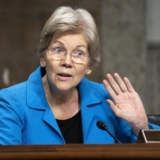Tesla’s Shareholders Called to Revisit Musk’s Lucrative Payout
Tesla finds itself at a crossroads once again as it beckons shareholders to the ballot box for a second deliberation on Elon Musk’s eye-popping $56 billion payday. The tech titan’s remuneration package, initially greenlit amidst much fanfare, has been thrust back into the spotlight following a legal showdown that saw a shareholder emerge victorious against the electric carmaker earlier this year.
At the heart of the matter lies the contentious fallout from a lawsuit that effectively invalidated Musk’s lofty compensation plan, sending shockwaves through the ecosystem and casting a shadow of uncertainty over the future of executive pay at the company. Now, faced with the prospect of recalibrating their approach to rewarding their enigmatic CEO, the board of directors has called upon shareholders to reconsider the merits of his gargantuan payout.
The saga surrounding this compensation package serves as a poignant reminder of the intricate dance between corporate governance and shareholder activism in today’s corporate landscape. What was once hailed as a bold and visionary move to incentivize his continued stewardship of its fortunes has now been thrust under the microscope, prompting soul-searching among investors and board members alike.
Yet, amidst the tempest of controversy, one cannot overlook the underlying implications of this saga for the broader trajectory. As the company grapples with an ever-expanding portfolio of ambitious projects, from electric vehicles to renewable energy solutions, the question of executive compensation looms large as a barometer of its commitment to accountability and transparency.
For Musk, whose unorthodox leadership style and penchant for grandiose promises have become synonymous with the brand, the outcome of this shareholder vote holds far-reaching ramifications. Beyond the sheer magnitude of the potential windfall, the decision will serve as a litmus test of investor confidence in the ability to steer them towards its lofty ambitions while balancing the interests of shareholders.
As shareholders prepare to cast their ballots once more, the spotlight shines brightly on the boardroom, where the delicate dance between corporate governance and executive compensation plays out against a backdrop of mounting scrutiny and skepticism. In an era defined by unprecedented corporate wealth and power, the outcome of this vote carries profound implications not just for Tesla, but for the broader landscape of corporate governance in the 21st century.






